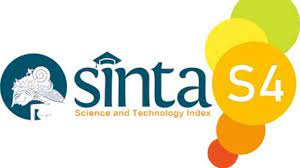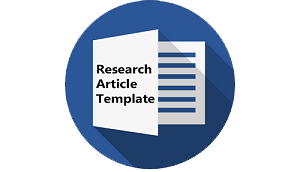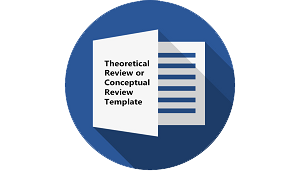Discovery Learning to Improve English Achievement: A Classroom Action Research to the Seventh Graders of SMPN 1 Kedung Jepara
DOI:
https://doi.org/10.30957/ijoltl.v5i2.622Keywords:
discovery learning, action researchAbstract
This study aims to describe the Discovery Learning Model (DL) to improve the English achievement. The problem is whether the application of DL can improve the English achievement of the seventh graders of SMPN 1 Kedung Jepara. This research applied classroom action research conducted in two cycles, each of which consisted of four stages: planning, implementing, observing, and reflecting. Participants of this study were 36 students, consisting of 20 (55%) girls and 16 (45%) boys. Indicators of success are set when at least 75% of students achieve mastery learning after the applied DL. Results show (1) the average learning achievement in the first cycle was 7.07 and 8.62 in the second cycle the cycle; (2) the mastery learning in the first cycle was achieved by 19 (52.78%) students, and 17 students or 47.22% of incomplete; and (3) completeness of classical learning in cycle I was 52.78% and 100% in cycle II. This means that the results of the second cycle are better than the first cycle. There is also evidence that students activity in the learning process, both individually and in groups increases substantially. Other findings show that the response of the students towards the implementation of DL was 81.81% that indicates very strong agreement.
Downloads
References
Amyani et al. (2018). Penerapan Model Discovery Learning Untuk Meningkatkan Aktivitas dan Hasil Belajar. Jurnal Pendidikan, 2(1), 15–20.
Budiningsih, A. (2005). Belajar dan Pembelajaran. Jakarta: Rineka Cipta.
Burns, R. W., & Ellis, B. M. (1970). What is discovery learning? Science Education, 54(2), 105–107. https://doi.org/10.1002/sce.3730540203
Department, H. E. (2017). Develpoment of Curriculum 2013. Jakarta: Directorate of High School Development.
Education, D. O. (2015). Development of Curriculum 2013: Public Test Materials. Jakarta: Ministry of Education and Culture.
Emetembun. (2016). Teori-Teori Belajar. Jakarta: Penerbit Erlangga.
Online, J. K., Basiradanuwijaya, T., & Tadulako, U. (2016). Peningkatan Hasil Belajar Siswa Kelas IX MTS 1 Model Palu pada Kompetensi Dasar “Stating the Intention/ Purpose†dalam pembelajaran Bahasa Inggris menggunakan Discovery Learning berbantuan Video. Jurnal Pendidikan, 7(3), 208–219.
Malik. (2001). Pengertian Discovery Learning. Bandung: Citra Aditya.
Pelton, R. P. (2010). Action Research for Teacher Candidates. New York: Prentice Hall.
Saab, N., Van Joolingen, W. R., & Van Hout-Wolters, B. H. A. M. (2005). Communication in collaborative discovery learning. British Journal of Educational Psychology, 75(4), 603–621. https://doi.org/10.1348/000709905X42905
Sobari, M. R., & Husnussalam, H. (2019). The Use of Discovery Learning Method to Improve Students ’ Writing Descriptive Text. PROJECT (Professional Journal of English Education), 2(2), 133–139.
Sugiyono. (2006). Metode Penelitian Kuantitatif Kualitatif dan R& D. Bandung: Alfabeta.
Widyastuti, E. S. (2014). Penerapan model pembelajaran discovery learning pada materi konsep ilmu ekonomi. Prosiding Seminar Nasional,2015, h.36. 33–40.
Yuliatun, L., Masykuri, M., & Utami, B. (2017). Discovery learning with hierarchy concept to improve analysis ability and study achievement hydrolysis subject. Jurnal Inovasi Pendidikan IPA, 3(2), 172. https://doi.org/10.21831/jipi.v3i2.13919
Downloads
Published
How to Cite
Issue
Section
License
Authors who publish with this journal agree to the following terms:
- Authors retain copyright and grant the journal right of first publication with the work simultaneously licensed under a Creative Commons Attribution-ShareAlike 4.0 International License that allows others to share the work with an acknowledgement of the work's authorship and initial publication in this journal.
- Authors are able to enter into separate, additional contractual arrangements for the non-exclusive distribution of the journal's published version of the work (e.g., post it to an institutional repository or publish it in a book), with an acknowledgement of its initial publication in this journal.
- Authors are permitted and encouraged to post their work online (e.g., in institutional repositories or on their website) prior to and during the submission process, as it can lead to productive exchanges, as well as earlier and greater citation of published work (See The Effect of Open Access).












